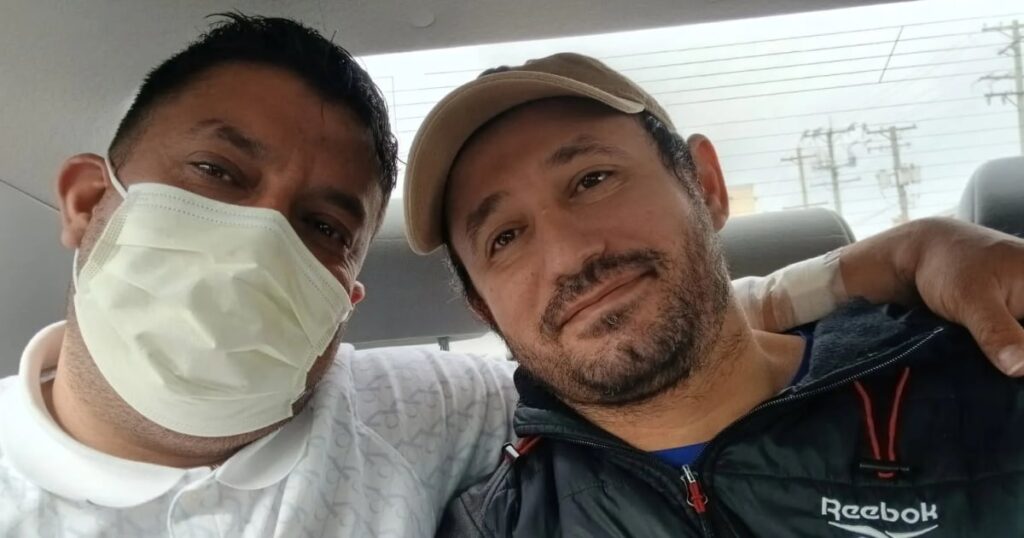A Venezuelan man who came to the United States to help his brother, who has end-stage renal disease, was reunited with his sibling after his temporary release from Immigration and Customs Enforcement on Friday.
José Gregorio González’s story made headlines this week after community members rallied to show support for the brothers. González had been detained by ICE since March 3, when he was arrested after he had accompanied his brother, José Alfredo Pacheco, to a dialysis appointment.
“They asked his name, he told them and the officer told him, ‘We are the ICE team. We have a deportation order from the judge. Don’t run because it will be worse,’” Pacheco told Telemundo Chicago in Spanish in a recent interview.
Pacheco, 37, said his world just fell. “I’m here alone,” he said.
González, 43, traveled to the U.S. from Venezuela last year to help in his younger brother’s medical care.
González sought U.S. asylum, but did not pass an initial credible fear interview and had a deportation order placed on him. He was, however, allowed to remain in the U.S. under ICE supervision.
“He had no criminal record,” said Tovia Siegel, director of organizing and leadership at The Resurrection Project’s Immigrant Justice Department, which has been working on the case.
Meanwhile, Pacheco has been receiving four hours of dialysis multiple times a week, beginning at 4 a.m.
“My health is at serious risk — I have 100% kidney failure and depend on dialysis three times a week from 4 a.m. until 8 a.m. It’s extremely difficult — sometimes, I can barely get out of bed,” Pacheco told a crowd of supporters at a rally earlier this week.
“I have three children, 9-year-old twins and a 17-year-old back home, and I want to live to see them grow up. My brother used to take me to my appointments, but now I’m alone. My brother is a good man, not a criminal in Venezuela or here — he came only with the hope of donating his kidney to me,” Pacheco said.
According to a letter from Pacheco’s doctors obtained by NBC News, González is the living kidney donor Pacheco desperately needs because even in the case of blood group incompatibility with his brother, González could secure a transplant for Pacheco by participating in a paired kidney exchange, which connects pairs of compatible recipients and donors.
Participating in a paired kidney exchange means González could save two lives, his brother’s and a second kidney recipient’s, Siegel said.
González spoke to Telemundo Chicago last week from the Clay County Detention Center in Indiana where he was being held.
“I hope I can go out and achieve that goal of giving my kidney to my brother … I hope he has a lot of faith and patience that we will soon be together and do the transplant,” González said.
On Friday, the brothers’ hope became reality.
“I’m extremely happy, it’s a blessing,” Pacheco told the Chicago Tribune on Friday after he was reunited with his brother.
A day before the brothers’ reunion, Resurrection Project chief program officer Eréndira Rendón said ICE’s decision to temporarily release González so he could go through with his planned kidney donation was a “victory for humanity and compassion.”


